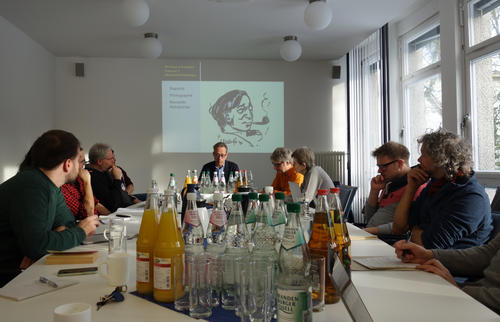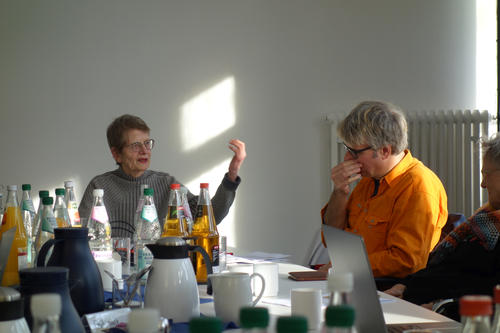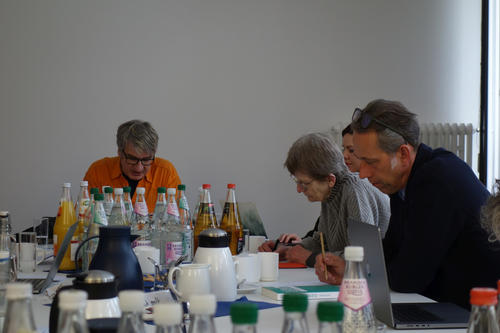Kracauers Wirklichkeiten. Wahrnehmung, Medialität, Geschichte
17.01.2024 | Workshop by the Cinepoetics group with Johannes von Moltke, Drehli Robnik, and Heide Schlüpmann
Research Focus: Historical Phenomenology
Taking the research focus as starting point, Michael Wedel opened the workshop with the question of a phenomenological approach to Kracauer. In his Theory of Film (1950), Kracauer had developed the fundamental claim of focusing on the medium for its own sake, as „a phenomenon with its own claim.“ Hence the following question: What is the relationship between the moments of reality and those of history in Kracauer's work?
Kracauer's figure of the spectator was used to address these aspects. What kind of experiences does the viewer have and how do they affect the viewing experience of the film? What organic contradictions result from this and how reciprocal is the relationship?
Following these introductory thought, Johannes von Moltke posed the critical role of the relationship between anthropos and medium, mind and history in his contribution "Siegfried Kracauer's media anthropology." The fact that humans have always already formed an inseparable link with the media they produce has been described with Christine Voss as a "constitutive relationality." Von Moltke, who reads Kracauer in terms of this interweaving of the human with cinematic technology, emphasizes the anthropoetic nature of film for Kracauer: to bring to life the participation of the non-human in the human.
Heide Schlüpmann replied: "but where is the human being in this interweaving with the machine?" She subsequently discussed Kracauer's socio-critical approach in her talk „Die Ruderer aber…! Nachdenken über Wahrnehmung zwischen Adornos Ästhetischer Theorie und Kracauers Theorie des Films.“ After a brief outline of the history of aesthetic philosophy, she located Kracauer's writings on film in the context of the collapse of metaphysics. By re-associating the space of seeing with the space of reality and reconnecting the eye to the human body, Kracauer set expectations for the new innovations developed by the "man of the masses," thus redeeming a humane claim. An "active passivity" takes place between the screen and the viewer, which allows the socialized human to have a self-reflective consciousness.
Finally, Drehli Robnik reflected on the contradictory relationship between perception and truth in Kracauer's work. In his contribution "Anhaltend im Vorletzten: Kracauers Wahrnehmung/Wahrheit, Red Emption und Le sang des ciné-bêtes," he estimated "perception as a (perceptual) statement on truth (from a distance)." By linking perception beyond seeing with action, Kracauer gives it a pre-political connotation, Robnik states. As film does not aim with truth, but rather assumes that it has truth already, it can be identified as a "paradoxical performative pre-politics."



